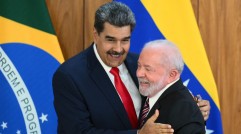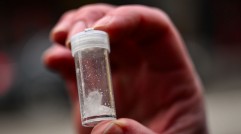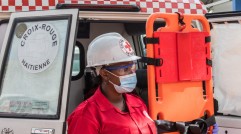Lopez Obrador Announces Containment Measures for the Pandemic– “There Will Be a Quick Return to Normality”
In a video, the president said that the growth of cases has slowed to a line in the curve. He added that preparations for the crisis were handled "very well" in terms of procurement of medical equipment and employment of medical specialists to work on vulnerable groups.
Lopez Obrador also assured that measures, such as closing down establishments, home isolation, and suspension of nonessential activities, contributed to a decrease in cases, claiming that the hospitals were not overwhelmed by patients at all.
As of Wednesday, Mexico has confirmed 16,752 total coronavirus cases and 1,569 deaths. The fatality rate is at 9.4%, according to data by John Hopkins University.
Compared to the approval assessment last year, there has been a -17 drop in the rating, which means 47% of Mexicans support the Lopez Obrador administration.
The new 10-point plan for the pandemic
The president said that 70% of the beds reserved for patients diagnosed with the coronavirus were left unoccupied. He promised that the administration would be guaranteed to provide financial aid to low-income households who needed additional support to strengthen domestic consumption.
"The people must have money so that they can buy goods," Lopez Obrador said. "Food, clothes, whatever is most needed."
In a separate video, Lopez Obrador admitted that Mexico's economy would contract by the end of the year, but said this would only be a temporary setback, claiming the economic recovery plan would ensure that the situation improved quickly. He said, "There will be a quick return to normality."
Almost as though following the United States in their three-phase approach, Lopez Obrador announced a national 10-point plan that served as a guideline for added measures against the coronavirus pandemic that sought to benefit the Mexicans.
It consists of eliminating corruption, cutting off expenditure, ascertaining the freedom of the people, establishing rules of law, creating a peaceful and just environment, exclusion of tax increases and fuel prices, lowering interest rates, investing in infrastructure projects, and benefitting from the United States-Mexico-Canada Agreement.
Check these out!
-
National Migration Institute in Mexico Deports Illegal Migrants to Control COVID-19 Transmission
-
US Manufacturing - American Industry to Never Rely on Foreign Supplies Again
Mexico City's Hospitals are Overwhelmed
Last week, according to a report by Reforma, Mexico City's hospitals had already reached maximum capacity. The local authorities claimed the healthcare facilities like the National Institute of Medical Sciences and Nutrition were 80% full, the number consisting mostly of coronavirus patients.
Mexico City Mayor Claudia Sheinbaum announced in a press conference earlier this month that 468 patients required ventilators in the city's hospitals.
The National Institute of Respiratory Diseases admitted to the mayor this Monday that this was the institute's first time treating so many intubated people simultaneously, with over 70 patients requiring respiratory assistance.
A medical front line worker at the ABC Medical center explained that 37 of their 40 respirators were being used. They were no longer able to receive any more patients with COVID-19. The medical staff said, "Right now, we don't have available beds."
More than four other private hospitals in the city seemed to be at maximum capacity. Doctors and hospital workers also said that more than a hundred different medical centers can still treat patients since they have more available beds.
The president of the National Association of Private Hospitals, Mario Gonzalez, said the demand for beds is increasing. He said there were 1,052 beds and 363 intensive care units with respirators across 100 Mexican medical centers to treat coronavirus patients.
The federal government's head of epidemiology, Jose Luis Alomia, said last Tuesday that Mexico City still had 42% of beds available across general hospitals and 67% of beds with respirators. Yet, he added that "as the cases increase ...we may see a decrease in the availability of beds."
Subscribe to Latin Post!
Sign up for our free newsletter for the Latest coverage!














